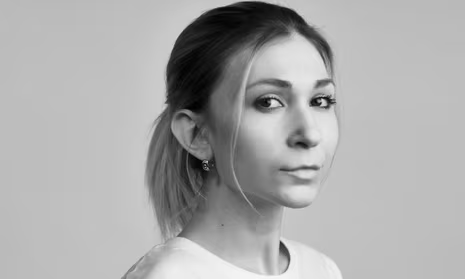The international community mourns the loss of Victoria Roshchyna, a 27-year-old Ukrainian journalist whose life was tragically cut short while reporting on the harsh realities of war. Her untimely death, which occurred while she was held in Russian detention, has sent shockwaves through global media, raising critical questions about the ongoing risks faced by journalists in conflict zones.
Victoria Roshchyna was not just a journalist; she was a symbol of courage and dedication. Born and raised in Ukraine, she displayed a relentless commitment to her country and her profession. Known for her fearless reporting, she often ventured into dangerous, Russian-occupied areas in Ukraine, determined to shed light on the experiences of those living under occupation.
In August 2023, while on a reporting trip, Roshchyna went missing. For months, her whereabouts were unknown, and her family and colleagues were left in agonizing uncertainty. It wasn’t until April 2024 that Russian authorities informed her family she was detained. Tragically, the news of her detention soon turned into the heartbreaking reality of her death while in Russian custody.
According to Ukrainian authorities, Roshchyna’s death is being investigated as a war crime. Moscow’s delay in reporting her detention and the circumstances surrounding her death have raised serious concerns. Ukrainian officials suspect that her death was either the result of a deliberate murder or the outcome of the brutal treatment she endured during her captivity.
Russian authorities claim that Roshchyna died while being transferred from a detention facility in Taganrog, a city in southern Russia, to Moscow. The transfer, they said, was part of a plan for her release in a prisoner exchange. However, these claims have been met with skepticism, given the notorious reputation of Taganrog’s detention facility.
The detention facility in Taganrog has been described as “hell on earth” by human rights advocates. Tetyana Katrychenko from the Media Initiative for Human Rights highlighted the facility’s reputation for cruelty and harsh conditions, stating that Roshchyna was held in solitary confinement from May to September 2024. Reports from survivors and other detainees reveal widespread instances of torture and inhumane treatment at this facility.
Roshchyna’s death has become a poignant reminder of the ongoing atrocities faced by Ukrainian civilians and journalists under Russian occupation. The Office of the Ukrainian Prosecutor General is treating her death as a premeditated murder, underscoring the need for accountability in the face of such grave violations.
Throughout her career, Victoria Roshchyna was driven by a singular mission: to report the truth, no matter the personal cost. Her colleagues remember her as a tenacious journalist, someone who was always present where the most critical events in Ukraine were unfolding. She was fearless, navigating perilous territories to ensure that the voices of ordinary Ukrainians were heard by the world.
Evgeniya Motorevskaya, Roshchyna’s former editor at Hromadske, a prominent Ukrainian media outlet, shared in a statement that journalism was not just a job for Victoria—it was her life’s purpose. Motorevskaya recalled her unwavering commitment to documenting the reality of the war, even as the risks to her personal safety grew.
Roshchyna’s work appeared in major media outlets, including Ukrayinska Pravda, Hromadske, and Radio Free Europe. In recognition of her bravery, she was awarded the 2022 Courage in Journalism Award by the International Women’s Media Foundation.
Victoria Roshchyna’s death is not an isolated case. According to Petro Yatsenko, spokesperson for the Ukrainian Coordination Center for the Treatment of Prisoners of War, at least 25 Ukrainian journalists are currently being held in Russian captivity. Several others remain missing, their fates unknown.
The Ukrainian government has also reported that over 14,000 Ukrainian civilians are being held in arbitrary detention in Russia. Many have been in captivity since the war in eastern Ukraine began in 2014, following Russia’s annexation of Crimea.
These statistics serve as a stark reminder of the dangers that journalists like Roshchyna face when reporting from conflict zones. The role of journalism is critical in war-torn areas, where the truth is often suppressed or distorted by those in power. Yet, the risks are immense, and Roshchyna’s death illustrates the high price some pay in the pursuit of truth.
Victoria Roshchyna’s legacy is one of bravery, integrity, and an unwavering commitment to justice. Her story has become emblematic of the broader struggle for freedom of speech and press in times of war. As the world mourns her loss, it is imperative to remember the fundamental role that journalists play in keeping the public informed, even when it means putting their own lives on the line.
Her death also highlights the urgent need for international pressure on Russia to release detained journalists and civilians, and to ensure that those responsible for war crimes are brought to justice. Roshchyna’s life and work will continue to inspire journalists around the world who risk their lives to report the truth.
As we honor her memory, we must also recommit to defending the rights of journalists everywhere, ensuring that their voices—and the stories they tell—are never silenced.
Victoria Roshchyna’s life was tragically cut short, but her impact on Ukrainian journalism and the global media community will endure. She was a voice for the voiceless, and her work shed light on the lives of those caught in the crossfire of war. As her story continues to unfold, it serves as a powerful reminder of the sacrifices made by journalists in the pursuit of truth and justice.In the face of adversity, Victoria Roshchyna’s courage will forever be remembered as a testament to the power of journalism.









